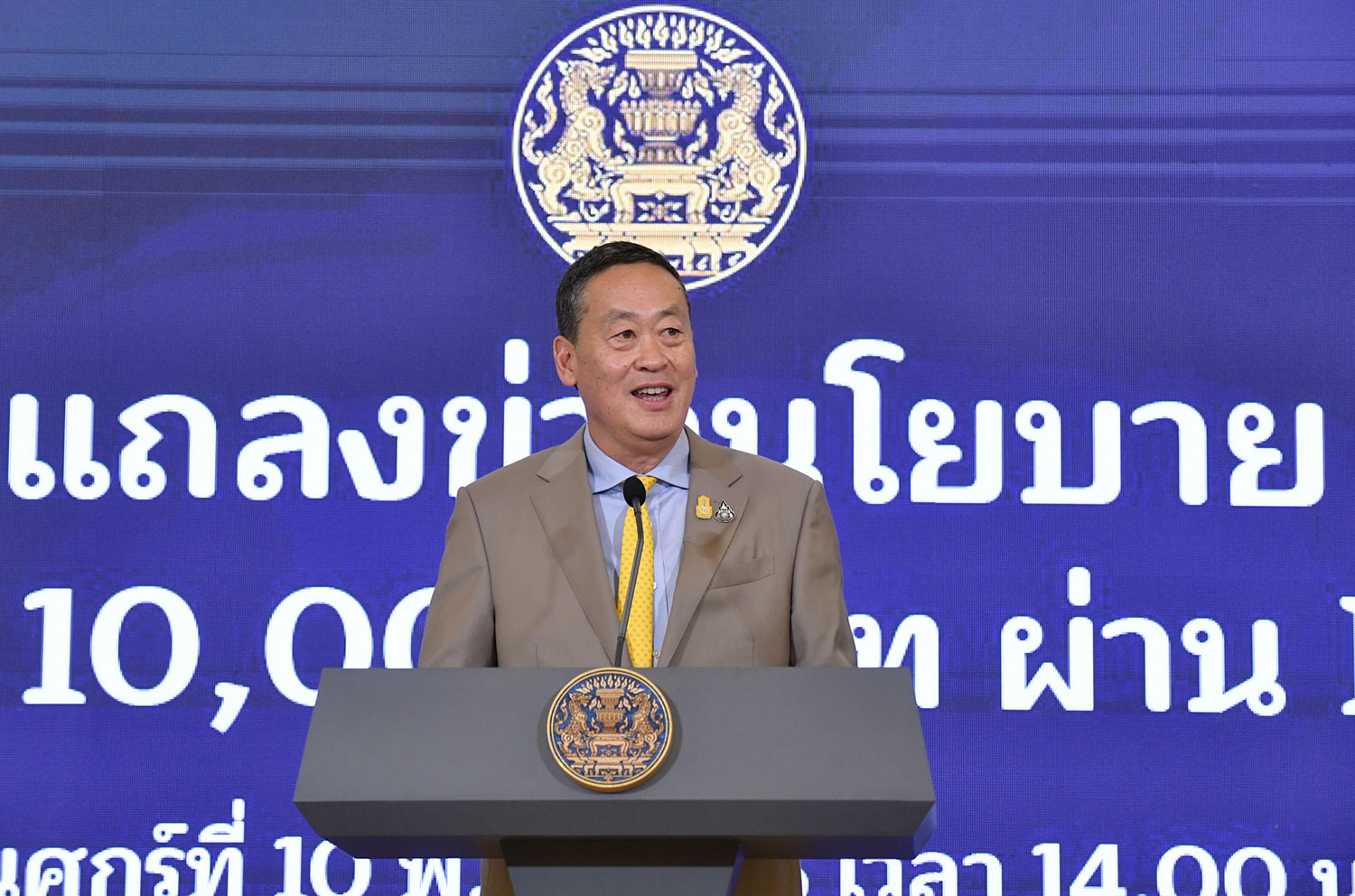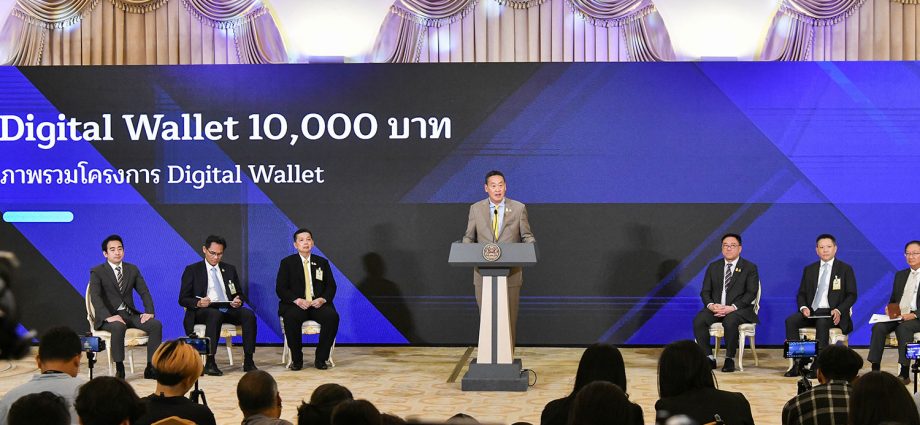Srettha clarifies conditions and funding sources, says 50 million people will be eligible for B10,000 handout

Prime Minister Srettha Thavisin on Friday put an end to weeks of speculation about the government’s digital wallet programme, saying it will begin in May and some 50 million people will be eligible for a 10,000-baht handout.
All told, the government will inject 600 billion baht into the economy — 500 billion via the digital wallet scheme and another 100-billion-baht fund to enhance the country’s economic potential, Mr Srettha said at a press conference that was televised nationwide.
The government will give 10,000 baht in digital money to every Thai aged 16 and older, as long as they have an income of less than 70,000 baht per month and less than 500,000 baht in bank deposits. Based on these criteria, an estimated 50 million people will be eligible — down from the 56 million intended originally.
People who earn more than 70,000 baht a month but have less than 500,000 baht in bank deposits, as well as those who earn less than 70,000 baht a month but have more than 500,000 baht in the bank will not be eligible.
Mr Srettha has said the cash handout “will act as a trigger to revitalise the economy”, which has grown by less than 2% per year on average in the past decade, among the weakest in Southeast Asia.
Under the programme, 10,000 baht in digital money will be transferred into a digital wallet on the Pao Tang mobile app, which is already used by millions of people. The transfers will begin in May, three months later than previously planned.
The money must be spent within six months in the district where the recipient’s home is registered. It cannot be transferred to other people or converted into cash.
The handout can be used to buy food and consumer goods only. It cannot be used to buy goods online, cigarettes or liquor; cash vouchers and such valuables as diamonds, gems or gold; and cannot be used to pay off debts or pay for water or electricity bills, fuel, natural gas or tuition fees.
Shops are required to register to join the programme and they must be in the tax system.
The new 100-billion-baht fund, meanwhile, will be used to enhance the country’s competitiveness in various fields, said Mr Srettha. This could include investing in new technologies and development of human resources. The fund is intended to draw people with capabilities in various fields to join in building economic growth.
“I would like to emphasise that this (digital money handout) is not welfare to help the needy, but it is about injecting money into the economy through spending rights to enable people to be partners with the government in reviving the country’s economy while maintaining the state’s fiscal discipline in all aspects,” the prime minister said.
“I want all people who are entitled for it to spend it with pride. Everyone is a contributor to the economic growth and stability of our country.”
The source of funding for the programme has been the subject of heated debate, with critics saying that borrowing would push up public debt to an unsustainable level.
However, Mr Srettha said the most practical approach for the government is to propose a bill to seek a special loan of 500 billion baht. The draft bill will go to the Council of State by the end of this year to make sure it does not contravene any laws and will be forwarded to parliament for debate early next year.
The 11-party coalition led by the Pheu Thai Party has a comfortable majority in parliament and no parties in the coalition oppose the digital wallet programme, according to local media reports.
Mr Srettha expressed confidence that the bill would be passed by parliament in line with Section 53 of the State Fiscal and Financial Discipline Act of 2018, so that the programme can start next May.
The other 100 billion baht for economic enhancement projects would be from state budgets, he said.

Prime Minister Srettha Thavisin tells the public that some 50 million Thais aged over 16 will receive 10,000 baht in digital money. Recipients must earn less than 70,000 baht per month and have less than 500,000 baht in bank deposits. (Photo: Government House)

